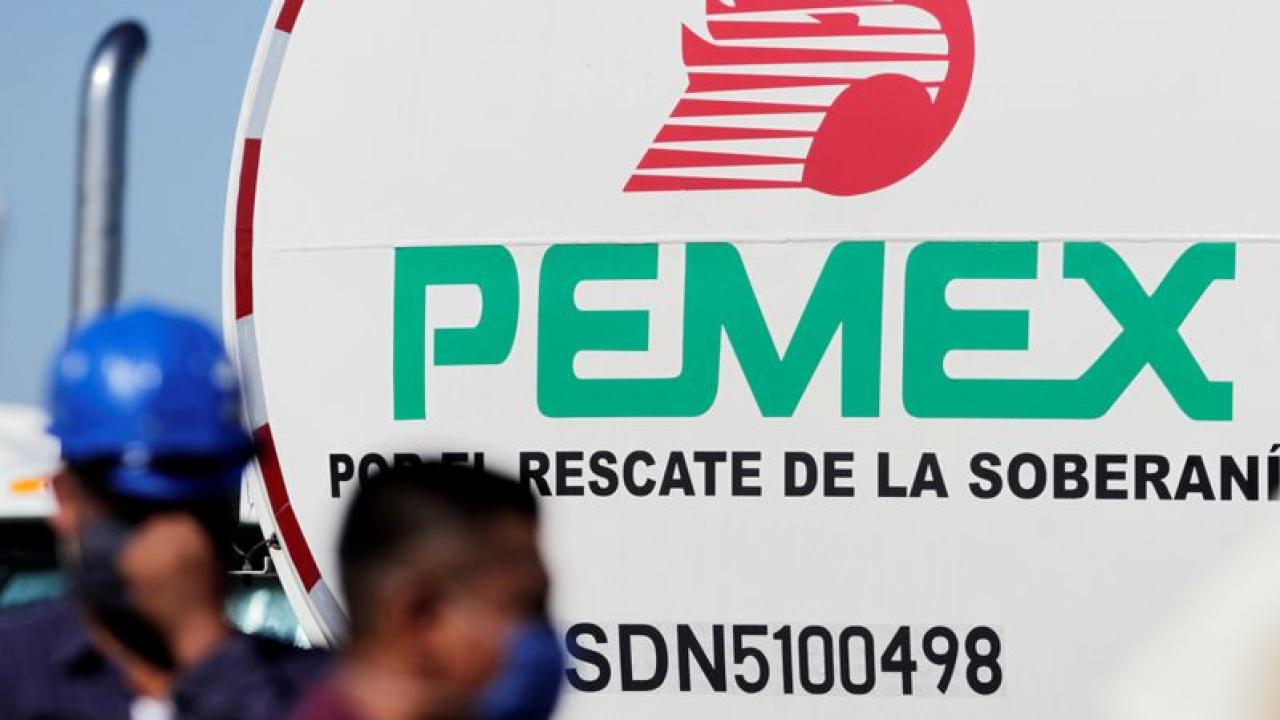
With the extension, the expectation of crude oil processing in the complex for all of 2024 is also reduced from 177,000 to 163,000 barrels per day; The director of the Mexican state company projects “a shortage” of 84,000 barrels of fuel per day towards the end of the year that will continue to be imported.
Petróleos Mexicanos (Pemex) again delayed the full start-up of operations at its new Olmeca refinery located in Paraíso, Tabasco, which will now produce fuel until the second half of this year, to close at an average annual volume of 163,000 processed barrels of crude oil per day. , which is 8% lower than the government's latest estimate.
This was explained by the general director of the company, Octavio Romero Oropeza, who appeared at the Mexican Petroleum Congress in Tampico, Tamaulipas, where he also admitted that this six-year term will not achieve the promised goal they called “energy sovereignty,” which meant leaving of importing automotive fuels.
“It will not be possible, we are no longer there,” he said in front of businessmen and high-level officials of the national oil exploration and production industry, since, according to forecasts, there will be a lack of 84,000 barrels per day that will still be purchased from others. companies in the world by the end of 2024, but the rest of the national demand for gasoline, diesel and jet fuel, which will be 1.2 million barrels per day, will be produced by Pemex, in the country or at its Deer Park plant.
The projected increase in fuel production will be 33.5% between the actual production reported by Pemex Industrial Transformation on the average between January and April, which is 545,000 barrels per day and the 728,000 barrels per day with which it is intended to close the year, only in the National Refining System.
To this production will be added the 248,000 barrels per day that Pemex will maintain as imports from the Deer Park refinery, 50% of which it bought from the Anglo-Dutch Shell two years ago, so although it is a product made by personnel and with equipment that belongs to Pemex, yes it is imported fuel.
Romero Oropeza also explained that the operating level of the six refineries in the country will be 1,002 million barrels per day of crude oil processing on the annual average of 2024, although between January and April it has averaged 976,000 barrels per day.
“This increase will come from the fact that we will finish the historic repair that has been made to the refineries that almost left us as scrap metal, because they wanted to get rid of them, but we have made historic investments so that they continue to belong to the Mexicans and continue to generate value for us,” he assured. In total, Pemex has invested more than US$4,074 million in the rehabilitation of the refineries, which began the six-year period with a crude oil process of less than 560,000 barrels per day.
However, the manager regretted that self-sufficiency will not be achieved at the end of the six-year term, because the installation of the new coke plant in Tula, Hidalgo, to process fuel oil from Salamanca, Guanajuato, and this refining center will be completed this year, but the Similar silver from Salina Cruz, Oaxaca, is 64% complete and will not be completed until next year.
In the most recent commemoration of the Anniversary of the Oil Expropriation, Romero Oropeza promised that he would end 2024 with an annual average of 177,000 barrels per day of processing, thereby once again reducing the perspective of Dos Bocas, a refinery that is still undergoing tests processing unfinished diesel that arrives by ship from Madero, Tamaulipas.
In this six-year term, the State oil company received contributions of US$51,718 million. "See it as if they gave it to us or as if they stopped charging us (...) no government had ever done what the President of the Republic did in the current administration, but Pemex is delivering more than three billion in these years to the Federation, what is the bottomless barrel?” said the official. Of the US$ 51,718 million received, US$ 30,476.7 million were allocated to the payment of the debt, US$ 17,384 million were for the construction of the Olmeca refinery, US$ 2,607 million to complement the rehabilitation of the six refineries and US$ 1,249 million for the purchase of Deer Park."









